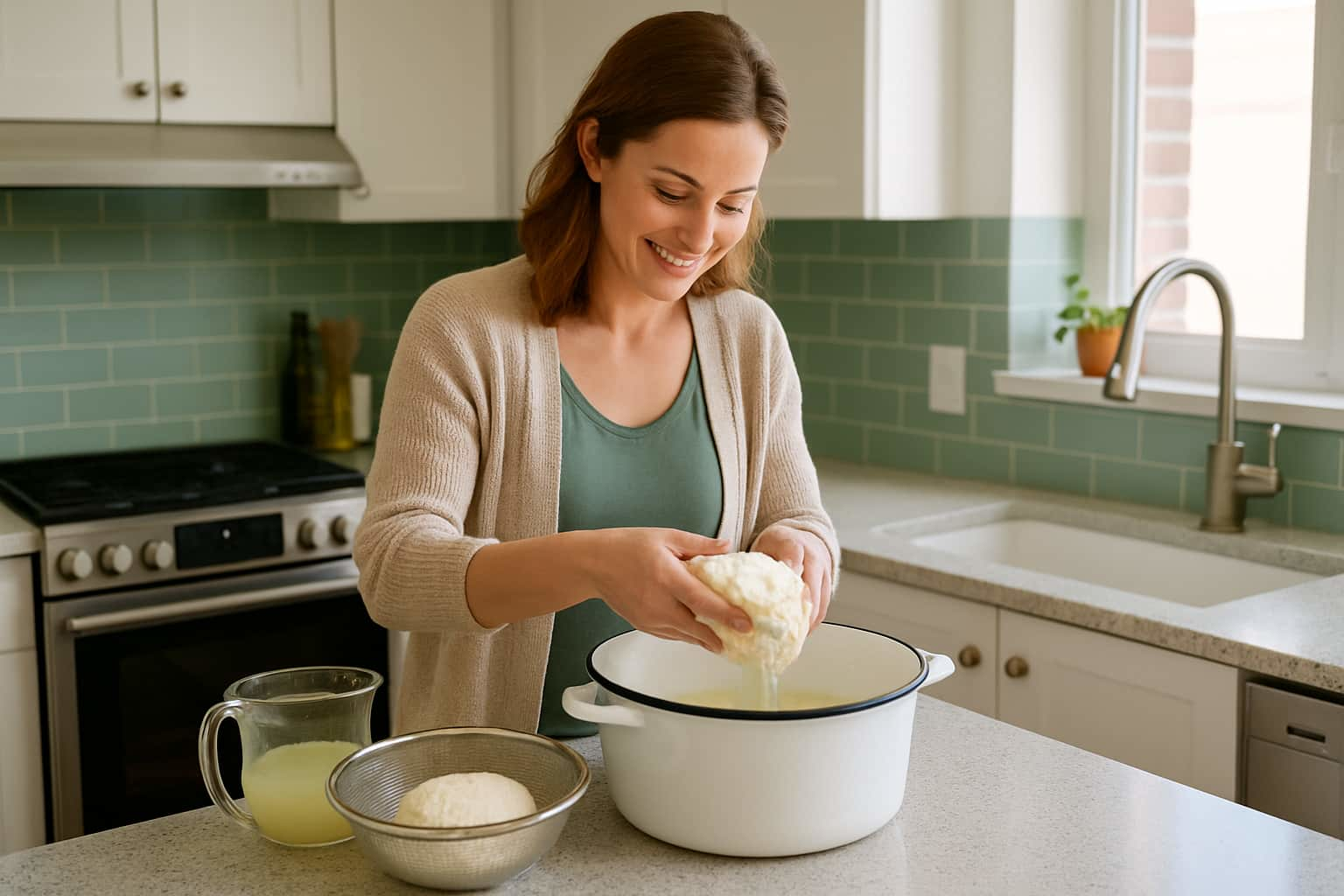Liquid rennet is an enzyme used in cheesemaking to help milk separate into curds and whey. It’s an essential ingredient that turns milk from a liquid into a solid mass, forming the base for most cheeses. You can find quality rennet and beginner-friendly tools in our cheese making supplies collection at The Basin Backyard.
What Exactly Is Liquid Rennet?
Liquid rennet is a natural enzyme blend that helps solidify milk. Traditionally, it’s made from enzymes found in the stomachs of young calves, but many home cheesemakers now use vegetarian or microbial rennet instead. Regardless of type, rennet’s main role is to act on casein, the main milk protein, to form curds while leaving the whey as a liquid byproduct.
It’s measured carefully, often in drops or millilitres, since even a small amount can curdle several litres of milk. Home cheesemaking kits often come with a pre-diluted version, making it easier to handle and mix evenly through the milk.
Types of Rennet Used in Cheesemaking
There are a few kinds of rennet available, and the one you choose can subtly affect the taste and texture of your final cheese:
-
Animal Rennet – The traditional form, providing a clean flavour and firm curd.
-
Vegetarian Rennet – Made from plant or microbial sources, suitable for all cheeses including vegetarian cheese.
-
Microbial Rennet – Created using specific moulds or fungi, commonly used for soft and fresh cheeses.
For most home cheesemakers, vegetarian and microbial rennets are the most accessible and reliable options. They’re widely used for feta, halloumi, camembert and other popular soft cheeses.
How to Use Liquid Rennet at Home
Using rennet at home is easier than it sounds. The key is timing, temperature and gentle handling. Here’s a simple overview:
-
Warm the milk – Heat your milk to the recipe’s recommended temperature, usually around 32–35°C.
-
Add starter culture – This develops the acidity and flavour needed for the cheese.
-
Dilute the rennet – Mix the required amount of liquid rennet in cool, non-chlorinated water.
-
Stir gently – Add it to the milk and stir slowly for 30–60 seconds.
-
Let it set – Allow the milk to rest, undisturbed, for 30–45 minutes until it forms a gel-like curd.
Once you have a clean curd break, you can cut, drain and mould the curds depending on your recipe.
Common Mistakes When Using Rennet
Many first-time cheesemakers struggle with rennet because small variables make a big difference. Here are a few tips to avoid common issues:
-
Don’t overheat – Too much heat can destroy the enzymes and prevent curd formation.
-
Avoid chlorinated water – It can deactivate rennet; always use filtered or bottled water.
-
Measure accurately – More rennet doesn’t mean faster setting. It can make cheese rubbery.
-
Be patient – Disturbing the milk before it sets properly can ruin the curd texture.
Once you’ve mastered these basics, the process becomes predictable and rewarding.
Pairing Rennet with Other Cheesemaking Essentials
Rennet works best alongside starter cultures and calcium chloride. Starter cultures add flavour, while calcium chloride restores calcium lost during pasteurisation, improving curd structure. Together, these ingredients make it possible to create a range of cheeses right from your kitchen.
You’ll find everything you need, including cultures, moulds and kits, in our cheese cultures and moulds section.
Why Home Cheesemaking Is Growing in Popularity
More people are discovering the satisfaction of making their own food from scratch. Cheesemaking offers a creative, hands-on way to connect with what you eat. It’s also surprisingly sustainable, reducing packaging waste and promoting local dairy use.
At The Basin Backyard in Knoxfield VIC, we’ve seen a growing interest in cheesemaking workshops, where beginners learn everything from curd cutting to ageing. Whether you’re a hobbyist or serious foodie, rennet is where the magic begins.
Liquid rennet is a simple but vital ingredient that turns ordinary milk into something extraordinary. Once you understand how it works, you can experiment confidently with recipes and techniques to create delicious, fresh cheese at home.
Key Takeaways
-
Liquid rennet is an enzyme that coagulates milk, separating curds from whey.
-
It’s essential for making most cheeses, from mozzarella to cheddar.
-
Available in animal, vegetarian and microbial forms.
-
Works best when used with starter cultures and precise temperature control.
-
Home cheesemakers can easily use rennet with basic kitchen tools.
Start Your Cheesemaking Journey
Ready to get started? Check our shop for the full range of products.

